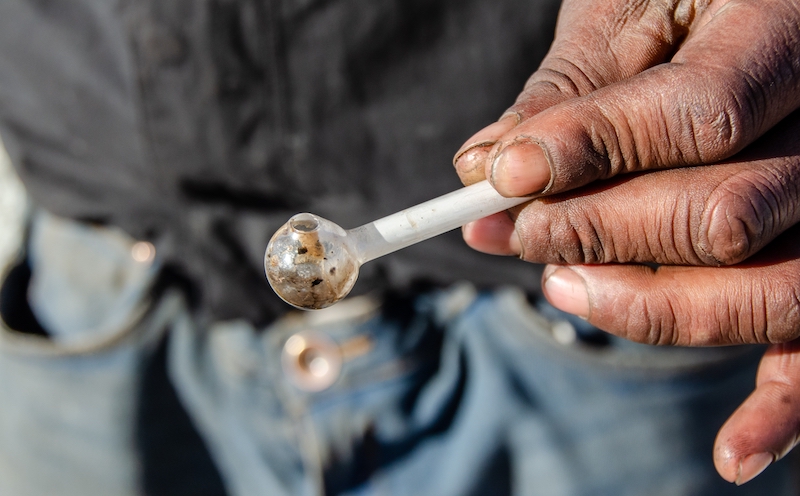Dr. Mac offers been-there, hard-won tips on how to stay on the road to early recovery if social alcohol use continues in your home
By Patrick McElwaine, Psy.D., LPC
Here’s a question I often hear in my practice or addiction counseling: “What do I do, Dr. Mac? I’m in early sobriety and trying to stay that way, but my husband (or wife, partner or best friend—whoever you live with) still drinks socially. They don’t have a problem with alcohol, but it does make it tougher for me! What do I do?”
This is a tough one, right?
For someone in early recovery (and even late, for many of us), this can be a struggle. We hear the motto in 12-step meetings, “People, places and things.” Well, people, places and things can be triggers for those in recovery—and they can lead to cravings, lapses and relapses.
In the field of psychology, people, places and things are considered part of stimulus control—where you add or take out stimuli to help the person reduce cravings or engage in healthier behaviors. An example would be to remove alcohol from the house or remove that neon-light Budweiser sign from your basement. Full confession: I used to be a collector of shot glasses—pretty appropriate for an alcoholic, right? I held on to the shot glasses for a very long time during my struggles with staying sober. Finally, I said to myself, “Why am I holding on to these?” I at first rationalized that I was a collector; it wasn’t hurting my recovery.
But the truth was, it wasn’t helping. So, the shot glass collection found a new home.
As part of my stimulus control, I hung up the “Serenity Prayer” and “Don’t Quit” poem in my house, where I would see it every time I woke up. I can’t tell you how many times I have said the “Serenity Prayer” in my recovery. I believe it has helped me—greatly. Also, I am OK admitting that I hung a decorative piece given to me of a cat hanging on to a cliff that reads,“Hang in there.” (You can laugh, but I think it helped!)
I was also extremely fortunate. When I stopped drinking on June 23, 2005, my then-girlfriend (now my wife) also stopped. I remember thinking that she was crazy. I asked her, “You don’t have a problem with drinking. Why would you do this?”
I remember her saying to me, “I don’t care about drinking, I care about you.” I was stunned. In my alcoholic mind, this was the most significant thing anyone could ever do. I am still grateful to her for doing that for me.
Not that her kind act translated to instant recovery for me. I continued to struggle for years, which is why my current sobriety date is Feb. 12, 2009. Through it all, my wife has not touched alcohol. As I said, I got lucky, and I’m still counting my blessings.
Many people are in relationships or live with others who are not problem drinkers yet continue to engage in social drinking. For most of us, we can’t expect our significant others to stop engaging in social drinking if they don’t have a problem with alcohol.
What are we to do? Here are four strategies to help those of you in this situation. Before I list my recommendations, I will also say that some individuals in early recovery are in relationships with individuals struggling with addiction. If this is you, think hard. These can be unhealthy relationships where some tough decisions may have to be made to help you continue your recovery. Remember, your own health and wellbeing are your priority now.
Tips for Sobriety Seekers Living with a Social Drinker
Clear communication: Be open and honest with your loved one about your current thoughts, feelings and struggles. Clear communication is a key step to helping your loved one become newly mindful of what your triggers are and help them respect your recovery. Remember, they may not know what would act as a trigger for you.
Support meetings: Find a 12-step meeting or any type of support gathering that works for you. Community is key to staying accountable and offering healthy support for your recovery. Find an open meeting where you can also invite your loved one to attend with you. It’s also critical to seek out other people in recovery and a sponsor you can speak to for guidance and support.
Individual therapy: Attending counseling can be extremely beneficial for one’s recovery. Many effective therapists encourage clients to bring their loved ones and families to sessions for psychoeducation about addiction and recovery and help with communication. A therapist can also help with underlying aspects of the addiction, such as processing anger, guilt, shame, fear, remorse and resentments that may be interfering with recovery.
Stimulus control: Knowing your triggers and changing your environment can be very helpful. No, I’m not asking for everyone to get my “hang in there” cat poster, but removing triggering stimuli in the house and adding helpful, recovery-oriented stimuli is often beneficial. And seriously, there is no shame in a cat-hanging-by-a-thread poster. Feel free to order one if you think it will help you stay the course. Whatever works, right?
ODAAT: That’s right: Take things one day at a time, as the Alcoholics Anonymous mantra goes. You will have your bad days and good days. During my struggles, I often reverted to rationalizing, blaming and projecting when I felt I was past the point of denial about my drug addiction and alcoholism. Doing life ODAAT—or even one minute at a time on especially rough days—helped me turn 60 seconds into days, days into months and months into years. Find ways to delay and distract yourself when feeling triggered, depressed or an intense craving. Stopping by a meeting, going for a walk, jogging, calling my sponsor, drawing, calling a friend, calling my therapist—I found something so I didn’t have that “F. it” moment.
Two beautiful inspirational messages I love to give to clients are: “One day it just clicks” and “Recovery will probably feel like you are getting worse.” Please take them to heart—or even hang one next to your cat poster. These wise sayings by those who have soberly and successfully gone before us are often just what we need in our lives to help us at home—with or without a social drinker present. They remind us to take it day by day and not give up on our recovery journey.
Patrick McElwaine, Psy.D., LPC, is known as “Dr. Mac” to his clients, students and colleagues. He has his own counseling practice, teaches counseling psychology at Holy Family University in Pennsylvania, is a faculty member at the Beck Institute and serves on the Bucks County National Alliance on Mental Illness (NAMI) board of trustees. His column“Dear Recovery” publishes regularly on TreatmentMagazine.com.
Photo: Laura D. Vargas













